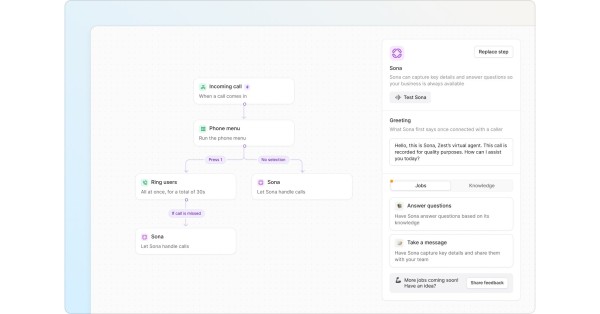Amid rising consumer skepticism, companies are increasingly leveraging AI agents to win back trust and improve customer service. According to Salesforce’s recent State of the AI Connected Customer report, consumer trust in companies has reached an all-time low, with 72% of consumers reporting they trust companies less than they did a year ago. In a landscape where 60% of consumers believe AI advancements make trust even more critical, AI agents represent both a challenge and an opportunity for brands, especially during high-stakes shopping seasons.
Trust Issues Heighten AI Stakes for Brands
The 2024 holiday shopping season brings heightened pressure for brands to balance customer experience with profitability. With more than $200 billion in global online sales anticipated to be influenced by AI, getting AI interactions right is essential. Consumers now expect AI agents to deliver quick, seamless experiences. However, trust in data handling remains a major barrier: 65% of consumers feel companies are reckless with their data, reflecting the urgent need for transparent AI applications.
In the context of AI agents—intelligent systems that understand and respond to inquiries without human intervention—the stakes are high. Consumers increasingly demand both efficiency and accountability, especially in areas like retail, where a poor customer experience could lead to lasting damage. Nearly 43% of consumers indicate they would not return to a brand after a negative service interaction, while a third of consumers will stop patronizing a brand if they encounter inconvenient processes, such as a complex return policy.
Younger Consumers Embrace AI Agents
Generation Z and millennials are more open to AI-powered interactions than older generations. Nearly a third of Gen Z consumers expressed comfort with AI agents shopping on their behalf, and 37% of Gen Z and millennials are open to using AI for faster service over human support. For younger generations, AI raises the bar for customer experience expectations, with 43% of Gen Z and millennial respondents believing AI can improve brand interactions, compared to only 32% of baby boomers.
These trends reveal a generational divide in AI adoption, with younger consumers more willing to embrace AI agents that can anticipate their needs and simplify shopping processes. Businesses that successfully leverage AI to enhance convenience and personalization stand to deepen loyalty with these digitally native demographics.
Transparency Is Key to Building Consumer Confidence
Although many consumers recognize the potential of AI, nearly half remain neutral or undecided on AI’s broader impact on their lives. A mix of 44% who express suspicion and 41% who feel curiosity about AI illustrates the uncertainty surrounding AI-powered customer service. To foster trust, businesses need to enhance transparency in AI interactions.
Consumers have specific preferences when it comes to AI:
- 73% want disclosure when they are interacting with an AI agent rather than a human.
- 45% are more likely to use AI if there’s a clear path to escalate issues to human agents.
- 44% are more likely to engage with AI if the system’s decision-making logic is explained.
These insights highlight the importance of clarity and control in customer interactions with AI agents. By openly communicating when and how AI is being used, businesses can help alleviate skepticism and make customers more comfortable with AI-driven service.
AI Agents in Retail: Driving Efficiency and Loyalty
For brands, AI agents offer an opportunity to deliver efficient, personalized service while improving margins. As Michael Affronti, SVP of Commerce Cloud at Salesforce, notes, “AI agents can help brands deliver consistent, personalized experiences across every channel – deepening customer loyalty and ultimately driving more sales.”
Retailers are already seeing the benefits of AI agents in customer service. At Saks, for instance, the introduction of Salesforce’s Agentforce has enabled the brand to automate routine tasks like order tracking, allowing service teams to focus on personalized interactions. Saks CTO Mike Hite expressed optimism about how Agentforce enhances the luxury shopping experience, noting that AI agents help maintain high-touch service standards while streamlining backend tasks.
Key Findings on AI and Consumer Expectations
Salesforce’s research underscores the value consumers place on efficient, reliable service:
- 69% expect consistent interactions across different departments, reflecting a desire for a unified experience.
- More than one-third of consumers report that inconveniences, like cumbersome returns or slow responses, can prompt them to switch brands.
- 30% of consumers and 37% of younger consumers would prefer AI interactions over human ones for speedier service.
These findings indicate a critical role for AI agents in enhancing consumer experiences. By efficiently handling repetitive tasks, AI agents free up human staff to address complex issues, leading to faster resolutions and higher satisfaction.
Bridging the Trust Gap Through Data Transparency
One of the most significant barriers to AI agent adoption is the issue of data security. With 65% of consumers wary of how companies handle personal data, businesses must implement transparent practices to build trust. Salesforce’s research shows that one in four consumers, and approximately one-third of Gen Z and millennials, would willingly share personal information with an AI agent if it improved service accuracy and personalization.
Transparency about data use, combined with a clear value proposition, can help bridge the trust gap. Consumers are open to sharing data when they understand the benefits, and companies that prioritize transparency will likely see better adoption and engagement rates with AI agents.
The Future of AI Agents in Customer Service
As AI technology advances, companies must balance efficiency with consumer trust. According to Salesforce, AI agents can significantly reduce friction in customer service by enabling quick responses, consistent experiences, and lower costs. The State of the AI Connected Customer report suggests that AI agents, when deployed effectively, can create a seamless customer experience that meets today’s high expectations.
The future of AI agents hinges on the industry’s ability to establish trust and transparency while meeting consumer demands for speed and personalization. Businesses that adopt AI responsibly, communicate openly, and ensure customer autonomy will be well-positioned to benefit from AI agents’ capabilities, turning today’s trust challenges into tomorrow’s loyalty-building opportunities.






















